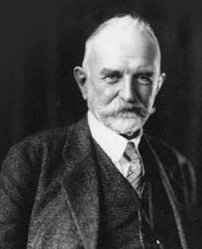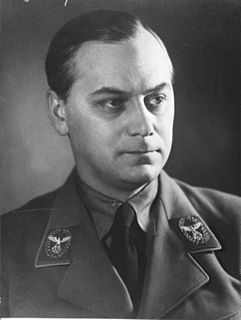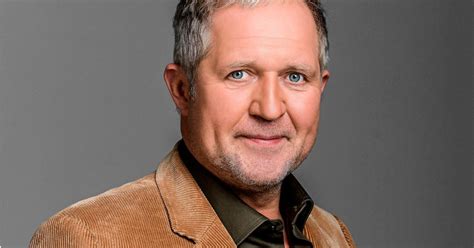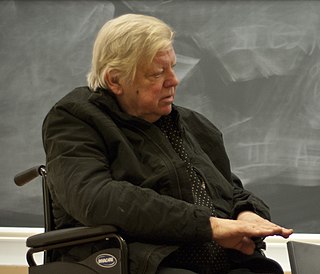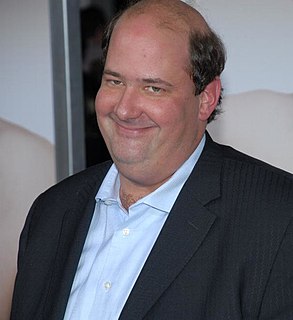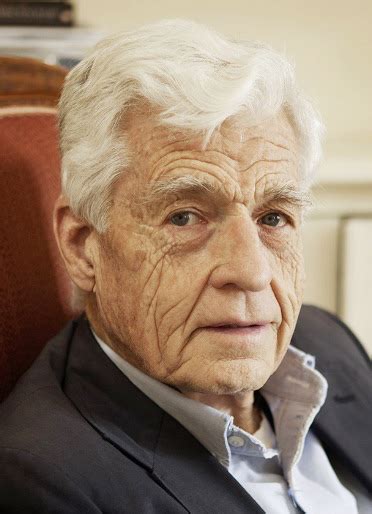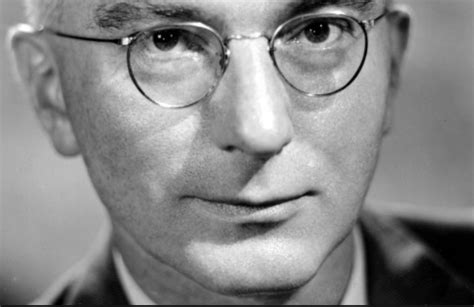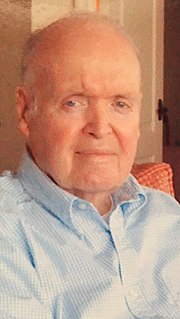Top 1200 Events In History Quotes & Sayings - Page 7
Explore popular Events In History quotes.
Last updated on November 2, 2024.
I spoke at, I think, four of the Trump rallies that were in Florida, and these were not highly coordinated events. I would often learn of the program of one of these events just a day or so before the event itself. That seems to evidence the point that these were not people off colluding with Russia.
The introduction of the Christian religion into the world has produced an incalculable change in history. There had previously been only a history of nations--there is now a history of mankind; and the idea of an education of human nature as a whole.--an education the work of Jesus Christ Himself--is become like a compass for the historian, the key of history, and the hope of nations.
Contingency is rich and fascinating; it embodies an exquisite tension between the power of individuals to modify history and the intelligible limits set by laws of nature. The details of individual and species's lives are not mere frills, without power to shape the large-scale course of events, but particulars that can alter entire futures, profoundly and forever.
In a way, I see my fiction as having moved in that direction - and the characters as dealing simultaneously with their personal history and with the present in which they are trying to make their way. So that the books are simultaneously about public and interior events. And I am having a great time getting confused and crazed writing about them.
We do not wish incorrect and unsound doctrines to be handed down to posterity under the sanction of great names, to be received and valued by future generations as authentic and reliable, ... Errors in history and doctrine, if left uncorrected by us who are conversant with the events, and who are in a position to judge of the truth or falsity of the doctrines, would go to our children as though we had sanctioned and endorsed them.
Well, there was stuff going on, heroic events. One was what used to be, and probably still is, the largest moving project in history. The headquarters of the Bell Telephone Company used to be brick. What they did was take the old brick building - with the operators in there saying, "Number please" and all that - and they put it through a quarter of a turn and moved it half a block!
Anyone, however, who has had dealings with dates knows that they are worse than elusive, they are perverse. Events do not happen at the right time, nor in their proper sequence. That sense of harmony with place and season which is so strong in the historian--if he be a readable historian--is lamentably lacking in history, which takes no pains to verify his most convincing statements.
Genius and science have burst the limits of space, and few observations, explained by just reasoning, have unveiled the mechanism of the universe. Would it not also be glorious for man to burst the limits of time, and, by a few observations, to ascertain the history of this world, and the series of events which preceded the birth of the human race?
If you're afraid to talk to the other adults in your school it is definitely throughout history the hallmark of a failing school. When I was writing about the teachers' strike in New York City in 1968, the middle school where events triggered that strike was a place where teachers were known to hide in their classrooms.
A person's life consists of a collection of events, the last of which could also change the meaning of the whole, not because it counts more than the previous ones but because once they are included in a life, events are arranged in an order that is not chronological but, rather, corresponds to an inner architecture.
Although we are necessarily concerned, in a chronicle of events, with physical action by the light of day, history suggests that the human spirit wanders farthest in the silent hours between midnight and dawn. Those dark fruitful hours, seldom recorded, whose secret flowerings breed peace and war, loves and hates, the crowning or uncrowning of heads.
History reminds us that revolutions are not events, so much that they’re processes – that for tens of thousands of years, people have been making decisions that irrevocably shaped the world that we live in today; just as today, we are making subtle, irrevocable decisions that people of the future will remember as revolutions.
"Historians of every generation, I believe, unless they are pure antiquarians, see history against the background - the controlling background - of current events. They call upon it to explain the problems of their own time, to give to those problems a philosophical context, a continuum in which they may be reduced to proportion and perhaps made intelligible."
There were the events of 1968 when young people began to ask their parents, what did you do in the war? And since the middle- or late-'70s, the French have been absolutely obsessed with the Vichy regime. They have an institute of contemporary history that turns out first-rate scholarly work. Their textbooks are accurate. Whether the students actually read them is another matter.
Children are prepared for democracy by being led to discuss current events without first learning the systematic subjects (politics, economics, history) which are necessary in order to discuss them. The Mole effect is to substitute slogans and superficial opinion for considered individual thought. And the opinion is that of the lowest common denominator of the group.
Listen, in dreams and especially in nightmares, from indigestion or anything, a man sees sometimes such artistic visions, such complex and real actuality, such events, even a whole world of events, woven into such a plot, with such unexpected details from the most exalted matters to the last button on a cuff, as I swear Leo Tolstoy has never invented.
Although it is tempting to imagine an ancient era innocent of biochemical weaponry, in fact this Pandora's box of horrors was opened thousands of years ago. The history of making war with biological weapons begins in mythology, in ancient oral traditions that preserved records of actual events and ideas of the era before the invention of written histories.
I have to throw in on a personal note that I didn't like history when I was in high school. I didn't study history when I was in college, none at all, and only started to do graduate study when my children were going to graduate school. What first intrigued me was this desire to understand my family and put it in the context of American history. That makes history so appealing and so central to what I am trying to do.
Now, we don't get that many specific threats against sporting events, per se. But we know from listening to the chatter how terrorists want to attack iconic events. So whether it's a major Fourth of July celebration or the Super Bowl or the World Series, we assume that that is what they're targeting.
History is my passion. So I write what I love to read. I find that if I combine history with a strong, sensual romance, it is like a one-two punch. The reader doesn't want the history without the romance, and of course the heavier the history, the more it has to be leavened with a sensual, all-consuming love story.
Neville recommends at the end of every day, before you go to sleep, to think through the events of the day. If any events or moments did not go the way you wanted, replay them in your mind in a way that thrills you. As you recreate those events in your mind exactly as you want, you are cleaning up your frequency from the day and you are emitting a new signal and frequency for tomorrow. You have intentionally created new picture for your future. It is never too late to change the pictures.
The truth of faith is a slender, glowing element that runs through even the seemingly ordinary and undramatic moments of existence. Even at low intensity, it is a steady source of illumination. Such religious truth is powerful even when it seems faint, even when it seems obscured by the larger events of history.
Shoes would interfere with her conversation, for she constantly addresses the ground under her feet. Asking forgiveness. Owning, disowning, recanting, recharting a hateful course of events to make sense of her complicity. We all are, I suppose. Trying to invent our version of the story. All human odes are essentially one, "My life; what I stole from history, and how I live with it.
We should emphasize not Negro History, but the Negro in history. What we need is not a history of selected races or nations, but the history of the world, void of national bias, race, hate, and religious prejudice. There should be no indulgence in undue eulogy of the Negro. The case of the Negro is well taken care of when it is shown how he has far influenced the development of civilization.



